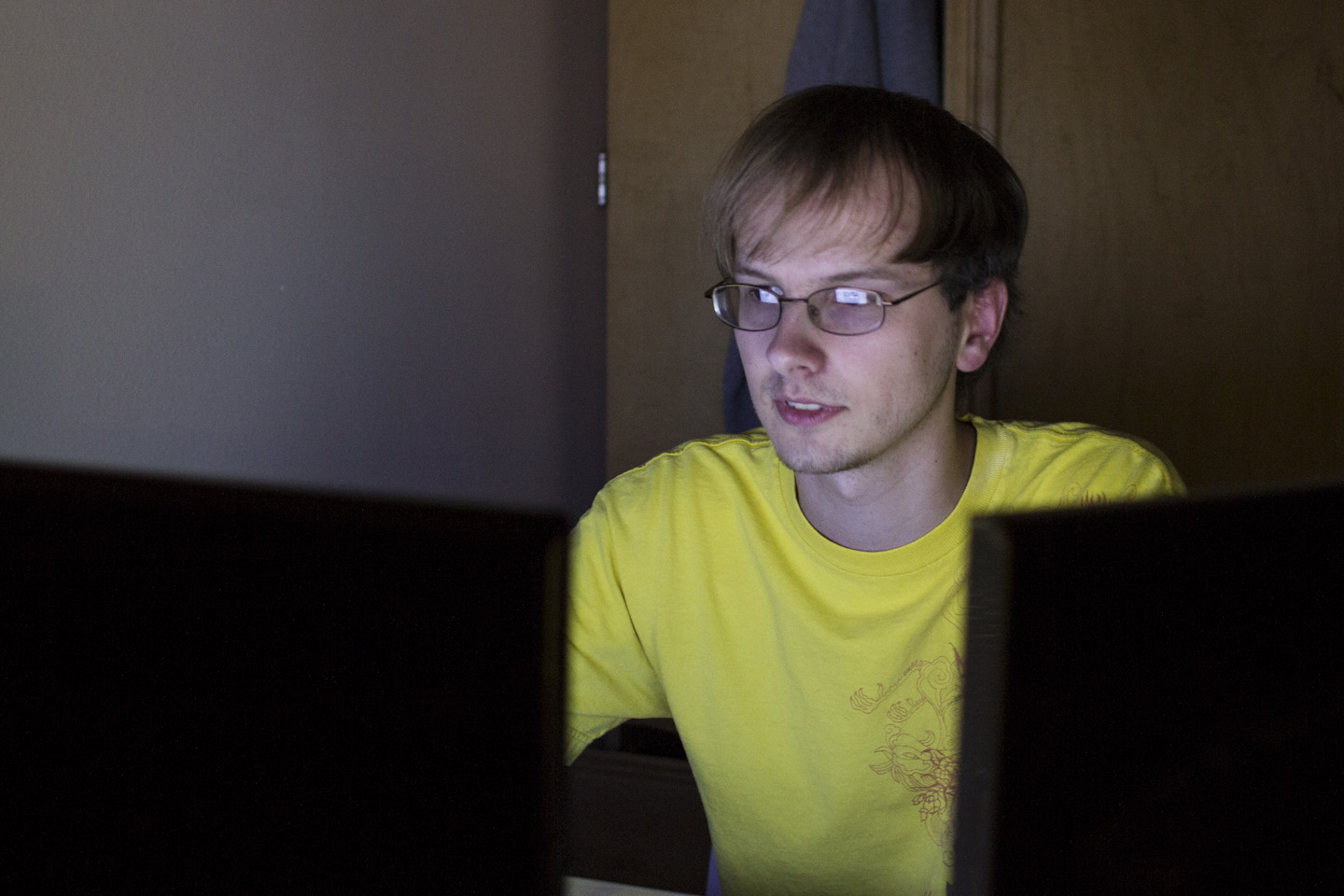Gone are the late 1970s and early 1980s when games like “Space Invaders,” “Paperboy” and “Asteroids” ruled the arcades. Now are the days of home consoles, where “Call of Duty,” “Halo” and “Grand Theft Auto” are king.
Back then, the most violence a game had was an 8-bit explosion of pixels. These days, the bloody violence and fiery explosions filling many games are often blamed for the actions of real-life shooters. One recent example is Ali Syed, a 20-year-old who shot three people and then himself in Orange County. He was described by the Orange County Sheriff as a loner who played video games to the point of obsession.
Events such as this have been at the center of controversy questioning whether or not violent video games desensitize us and should be seen as a direct cause of violence.
Video games affect us by activating a part of the brain used for finding pleasure, said Chris Grace, a professor of psychology and the vice president of Student Development and University Planning. Noting findings on both sides of the controversy that came down to correlations between video game violence, desensitization and increased aggression, Grace was adamant that correlational data does not always imply causation.
CORRELATION VS CAUSATION
“Yes, they probably have a greater influence in desensitizing those who are already somewhat prone to violence and [the players] need more to be enjoyable,” Grace said. “In other cases, it’s probably occurring. That does not mean, therefore, that these desensitized people are committing more violence in reality.”
Junior communications major Jeff Fujii has played multiple first-person shooter and role-playing games. He agrees that the link to real violence largely depends on the individual playing the game. In the games that give players a lot of freedom, the player could act out prior malicious thoughts within the game.'
“The more they play, the more they see how fun it is. In turn it can possibly affect them,” Fujii said. “Video games can enhance that and open up a larger scale to them.”
OUTSIDE INFLUENCES
However, there is something besides the video game that is happening in the lives of gamers who commit real-world violence, according to Grace. It could be lack of parental involvement or predisposition toward violence in the family that leaves a lasting impression on them.
Joseph Bartels, a sophomore Christian Ministries major, commented that parental supervision and video game intake go hand in hand.
“If a parent says, ‘Go ahead and play 10 hours of games a day,’ chances are the parent isn’t telling them, ‘Don’t go shoot someone because it’s bad,’” Bartels said. “I would say maybe their parenting skills aren’t as good.”
Fujii also sees upbringing as an important factor. Without discernment, supervision or teaching and allowed to play any game they please, they may come to believe that there is nothing wrong because their parents let them do it, Fuiji said. They may not be affected on a grand scale, thereby murdering someone, but their thinking will still be altered.
Jonathan Brunson, a junior cinema and media arts major, feels parents should be involved with every decision until the child is an adult. He believes parents should discuss with their children why they are not allowed to play certain games.
“Violence should never be fun,” Brunson said. “We have to be careful when we talk about murder in any level.”
GAMES WITH MORAL CHOICES
Some games, however, allow the player to make moral choices that shape the events of the narrative. Games like “Mass Effect,” “Dishonored” and “Fallout 3” do not always force the player to be completely violent. James Arnold, a graduate student working toward a master’s in Philosophy of Religion and Ethics, writes in his blog that these choices can tell us about how we react to ethical dilemmas. He uses the “Mass Effect” series as one such example.
“While I didn’t always agree with the ethics of the Paragon [honorable] choices, it led to many discussions with my friends about what a moral choice would be, given the situations we found ourselves in,” Arnold wrote.
Nonetheless, Grace pointed out that the ultimate reason for real-world violence goes back to when sin entered the world.
“We’re sin creatures,” Grace said. “The way we mistreat others and harm them does come back to our bent sin nature.”








